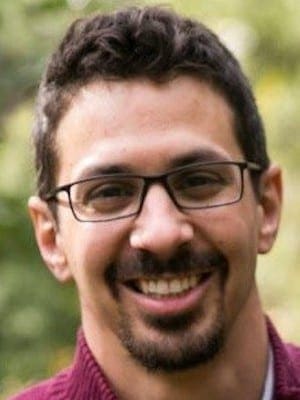Humanitarian tourism, while often well-intentioned, raises questions about its purpose, as well as its efficacy in addressing human needs and alleviating suffering.
As I explained previously, the term “sufferari” seems an appropriate label for these excursions due to similarities with a safari.
The question I pose concerning the sufferari among displaced individuals is not, “Is this right or wrong?” but rather, “Is this consistent with how I normally approach another’s suffering?”
Would I feel comfortable touring a children’s hospital in order to personally observe the hardships of families fighting terminal diseases?
How tasteful would it be to visit a shelter for battered women and then post pictures online posing with the victims I met?
Would it be appropriate to visit a hurricane-ravaged town in order to share a 15-minute conversation and Coke with a family whose home lies in wreckage?
I believe all these scenarios would be considered insensitive interaction that risk objectifying victims of suffering and loss. Yet when it comes to refugees, we too often find it acceptable to casually approach another’s pain and trauma.
By no means do I argue that we who are “placed” should distance ourselves from the displaced. Quite the opposite. We cannot turn our eyes away from those who suffer.
Scripture is ever certain that true faith requires an active concern for the poor and oppressed. The more I personally engage with the phenomenon of displacement, the more I see that this human tragedy grieves the heart of God.
When people tell me they are interested in helping meet the needs of displaced individuals, the first action I recommend they take is personal visits.
I know of numerous organizations and churches in Lebanon that coordinate visits in ways that are deeply meaningful and thoroughly edifying to all the parties involved.
As we personally engage the poor, we must constantly confront the challenge of developing methods that do not isolate a person’s humanity within the condition of suffering but rather affirm the beauty of her God-given dignity.
The following are points I recommend for guarding against the pitfalls of the sufferari within the current global crisis of displacement:
- Never objectify people who happen to be displaced. Refugee status is a technical label that denotes a specific situation, but we must at all times make our shared status of God’s image-bearers primary.
- Keep the individual, rather than the situation or condition, at the center of every relationship. This can mean asking the question, “Would I still be interested in engaging with this person when she ceases to be a refugee?”
- Do not include the distribution of money or aid in personal visits. Let visits be about people sharing with people, not about the rich sharing with the poor.
- Avoid brief in-and-out visits. Do not make a tent settlement community or a displaced family simply another stop on a tour; be prepared to spend time. The purpose of visits is to experience authentic connection with others, and this cannot be achieved in a mere 30 minutes or less. If you cannot afford to give quality time to the people you want to visit, it is probably better to not visit at all.
- Be very mindful about posting pictures of people and places of displacement on social media. Never make another’s suffering the background for self-display or promotion.
- Conduct visits only within the context of consistent, ongoing relationship. For me, this means only taking visitors to displaced families with whom I frequently share my life, with or without the accompaniment of others. If we are not spending time with displaced individuals on our own, we should not spend time with these individuals while hosting visitors.
- Finally, always consider how you would want others to interact with you if you were enduring extreme suffering. If you are not comfortable having your own personal suffering on display, do not display the suffering of others.
I cannot overstate the need for healthy, life-affirming engagement with the many millions suffering displacement in our world. Everyone has a role to play, and how we act, individually and corporately, matters.
Ministering to the poor, distressed and oppressed must not become a type of industry; displaying another’s suffering must never be a means for superficial ends.
Our ministry to the displaced must at all times navigate particular sensitivities while constantly affirming each person’s sacred humanity.
Let us experience inspiring moments of enriching, human-to-human connection. Let us experience more than a sufferari.
Brent Hamoud is programs manager for a boys’ home in Mount Lebanon associated with Kids Alive International and oversees a literacy program in South Lebanon. He is a 2016 Institute of Middle East Studies graduate. A version of this article first appeared on the IMES blog and is used with permission. His writings also appear on his blog, and you can follow him on Twitter @ThisHamoud.
Editor’s note: This article is the second of a two-part series. Part one is available here.
Programs coordinator at the Arab Baptist Theological Seminary in Beirut, Lebanon.

